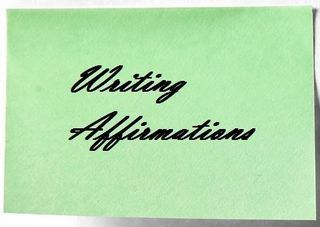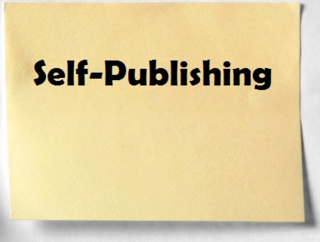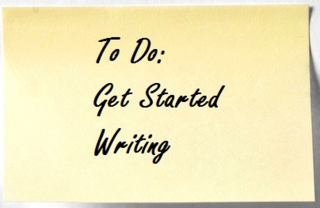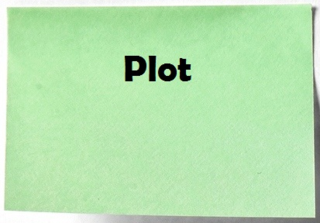Rob Bignell's Blog, page 312
December 23, 2014
Writing prompt: Try a new genre
Suffering from  writer’s block or need to add some spunk to your writing? The problem may be that you need to change up your routine. To that end, try this tip: Select a genre that you usually don’t write in. For five minutes, write a passage in that new genre.
writer’s block or need to add some spunk to your writing? The problem may be that you need to change up your routine. To that end, try this tip: Select a genre that you usually don’t write in. For five minutes, write a passage in that new genre.
Need an editor? Having your book, business document or academic paper proofread or edited before submitting it can prove invaluable. In an economic climate where you face heavy competition, your writing needs a second eye to give you the edge. Whether you come from a big city like Baltimore, Maryland, or if you come from a small town like Giants Neck, Connecticut, I can provide that second eye.
<A HREF="http://ws-na.amazon-adsystem.com/widg... Widgets</A>Related articles
 Through the act of writing, a writer learns more about himself than he could ever imagine
Through the act of writing, a writer learns more about himself than he could ever imagine What is an 'inciting incident' in a story?
What is an 'inciting incident' in a story? Self-publishing tip: Give yourself an editor
Self-publishing tip: Give yourself an editor Writing Affirmation: You cannot improve as a writer until actually revising something you wrote
Writing Affirmation: You cannot improve as a writer until actually revising something you wroteDecember 22, 2014
Writing prompt: Create an out-of-whack event
Suffering  from writer’s block or need to add some spunk to your writing? The problem may be that you need to change up your routine. To that end, try this tip: Often the opening sentence shows something out-of-whack in the world. This then sets up the story’s central problem that the main character needs to resolve. Look around your house and think of what would need to change for a situation to be off-kilter. For example, “Each time I picked up the telephone, no one was there” or “She reclined in my pool chaise as if completely at home, but I didn’t have a clue as to who she might be.” After writing five such opening lines, select one as your book’s first sentence.
from writer’s block or need to add some spunk to your writing? The problem may be that you need to change up your routine. To that end, try this tip: Often the opening sentence shows something out-of-whack in the world. This then sets up the story’s central problem that the main character needs to resolve. Look around your house and think of what would need to change for a situation to be off-kilter. For example, “Each time I picked up the telephone, no one was there” or “She reclined in my pool chaise as if completely at home, but I didn’t have a clue as to who she might be.” After writing five such opening lines, select one as your book’s first sentence.
Need an editor? Having your book, business document or academic paper proofread or edited before submitting it can prove invaluable. In an economic climate where you face heavy competition, your writing needs a second eye to give you the edge. Whether you come from a big city like St. Louis, Missouri, or a small town like Cheesequake, New Jersey, I can provide that second eye.
<A HREF="http://ws-na.amazon-adsystem.com/widg... Widgets</A>Related articles
 What is an 'inciting incident' in a story?
What is an 'inciting incident' in a story? Self-publishing tip: Give yourself an editor
Self-publishing tip: Give yourself an editor Writing Affirmation: You cannot improve as a writer until actually revising something you wrote
Writing Affirmation: You cannot improve as a writer until actually revising something you wrote
December 21, 2014
Five Great Quotations about Reading
“...reading  and writing were not the same - you couldn't just soak it up then squeeze it out again.” – David Nicholls
and writing were not the same - you couldn't just soak it up then squeeze it out again.” – David Nicholls
“If you don't have time to read, you don't have the time (or the tools) to write. Simple as that.” – Stephen King
“I am a part of all I have read.” – John Kieran
“...it's impossible to be a great writer without being a great reader." – Brad Thor
“What really knocks me out is a book that, when you’re all done reading it, you wish the author that wrote it was a terrific friend of yours and you could call him up on the phone whenever you felt like it.” – J.D. Salinger
“She reads books as one would breathe air, to fill up and live.” – Anne Dillard
Need an editor? Having your book, business document or academic paper proofread or edited before submitting it can prove invaluable. In an economic climate where you face heavy competition, your writing needs a second eye to give you the edge. Whether you come from a big city like Springfield, Massachusetts, or a small town like Burnt Corn, Alabama, I can provide that second eye.
&amp;amp;amp;amp;amp;amp;amp;lt;A HREF=&quot;http://ws-na.amazon-adsystem.com/widg... Widgets&amp;amp;amp;amp;amp;amp;amp;lt;/A&amp;amp;amp;amp;amp;amp;amp;gt;Related articles
 Five Great Pieces of Advice to Aspiring Writers
Five Great Pieces of Advice to Aspiring Writers Five Great Quotations about Book Critics
Five Great Quotations about Book Critics Five Great Quotations about Plot
Five Great Quotations about Plot Self-publishing tip: Give yourself an editor
Self-publishing tip: Give yourself an editor Show rather than tell the backstory
Show rather than tell the backstory
December 20, 2014
When I reach for my pen, nothing is out of reach
The very  act of writing is a testament that anything is possible.
act of writing is a testament that anything is possible.
Writing brings reality to what we cannot now do: the technology to travel to other solar systems; use of magical potions to immediately heal an injured comrade; the ability to cross the Old West or sail aboard a Roman galleon. Whether you pen fiction that creates a story centered on these impossibilities or nonfiction that details the path toward obtaining such dreams, writing transforms a vision in one’s head into something tangible.
The fuel for this transformation is one’s imagination; the devices that this creativity drives vary from pen and paper to keyboard and computer memory, from paperback to ebook.
When our visions become something tangible that others enjoy as well as learn and grow from, they can ignite within readers the desire to make that dream more than just words on a page. The annals of science fiction are ripe with readers who became engineers, scientists and entrepreneurs that made visions of space travel, new communication devices, and medical cures a reality of our modern times. Political, economic and philosophical tomes have spawned new ways of thinking about our world that whole generations then embraced and constructed.
Are you lonely and seeking love? Write a romance. Do you dream of greater wealth? Write a guidebook to investing. Want to visit mysterious Incan ruins? Write a travelogue or an action-adventure novel.
For with your pen, you can go anywhere and achieve any wish you desire.
Need an editor? Having your book, business document or academic paper proofread or edited before submitting it can prove invaluable. In an economic climate where you face heavy competition, your writing needs a second eye to give you the edge. Whether you come from a big city like Wichita, Kansas, or a small town like Bird In Hand, Pennsylvania, I can provide that second eye.
&amp;amp;amp;amp;amp;amp;lt;A HREF=&amp;quot;http://ws-na.amazon-adsystem.com/widg... Widgets&amp;amp;amp;amp;amp;amp;lt;/A&amp;amp;amp;amp;amp;amp;gt;Related articles
 Market your book by wearing your book title
Market your book by wearing your book title Draw attention to book via article directories
Draw attention to book via article directories Today's Writing Inspiration: Your first written sentence is the foundation of all of your dreams
Today's Writing Inspiration: Your first written sentence is the foundation of all of your dreams Prologue, epilogue offer info, action to boost tale
Prologue, epilogue offer info, action to boost tale Rotate third-person limited to avoid issues
Rotate third-person limited to avoid issues
December 19, 2014
Put your Twitter profile text to work for you
When promoting  your book, Twitter no doubt will be among the social media you use. One often overlooked aspect of tweeting is your Twitter profile text.
your book, Twitter no doubt will be among the social media you use. One often overlooked aspect of tweeting is your Twitter profile text.
The profile text consists of the 160 characters that appear below your name. Whenever anyone looks up exactly who you are on Twitter, those 160 characters will appear with your name and the icon that represents you (which usually is your face or your book cover).
A lot of authors try to be witty and clever in their profile. This probably isn’t the best use of those 160 characters, however. Instead, you want to use words that quickly identify who you are, Remember, Twitter users by nature scan all the tweets and profiles they encounter.
Who you are primarily consists of two parts – your occupation (i.e. Writer, Author, Novelist) and your genre (i.e. science fiction, romance, hiking guidebook). Hence, you might write something like:
Jane Johnson
Romance and Mystery Writer
Along with your genre, you may want to include the title of your book or the series you write. For example:
Rob Bignell
Author of “Hittin’ the Trail” and “Headin’ to the Cabin” hiking guidebook series
This approach also will make you easier to find. Regarding the latter, when people search for Twitter users who talk about or hold specific subjects, the wording in the profile text is what most often shows up in their search results.
Need an editor? Having your book, business document or academic paper proofread or edited before submitting it can prove invaluable. In an economic climate where you face heavy competition, your writing needs a second eye to give you the edge. Whether you come from a big city like San Diego, California, or a small town like Eek, Arkansas, I can provide that second eye.
<A HREF="http://ws-na.amazon-adsystem.com/widg... Widgets</A>Related articles
 What is an 'inciting incident' in a story?
What is an 'inciting incident' in a story? Self-publishing tip: Give yourself an editor
Self-publishing tip: Give yourself an editor Writing Affirmation: You cannot improve as a writer until actually revising something you wrote
Writing Affirmation: You cannot improve as a writer until actually revising something you wrote
December 18, 2014
Self-publishing tip: Set your story aside
To remove  yourself from the story so you can best determine what needs to be changed, set it aside for a few days, then re-read. You may find that some of what sounded great when you first penned it is now problematic and that some of what you initially disliked actually reads quite well.
yourself from the story so you can best determine what needs to be changed, set it aside for a few days, then re-read. You may find that some of what sounded great when you first penned it is now problematic and that some of what you initially disliked actually reads quite well.
Need an editor? Having your book, business document or academic paper proofread or edited before submitting it can prove invaluable. In an economic climate where you face heavy competition, your writing needs a second eye to give you the edge. Whether you come from a big city like Minneapolis, Minnesota, or a small town like Nothing, Arizona, I can provide that second eye.
<A HREF="http://ws-na.amazon-adsystem.com/widg... Widgets</A>Related articles
 Do I need to buy a barcode when self-publishing?
Do I need to buy a barcode when self-publishing? Attract attention by adding 'shout line' to cover
Attract attention by adding 'shout line' to cover Think about concerns over marketing book
Think about concerns over marketing book
December 17, 2014
You sound so much better when you use good grammar: Complement vs. compliment
Oh what  a difference a letter makes! Such is the case with the often confused compliment and complement.
a difference a letter makes! Such is the case with the often confused compliment and complement.
Compliment means “a kind or flattering remark”: He paid Michelle the biggest compliment by mentioning that her new haircut looked nice.
Complement means “to go well with”: The blue dress perfectly complemented Danielle’s eyes.
An easy way to remember the difference is “A compliment is kind – both take i’s.”
Need an editor? Having your book, business document or academic paper proofread or edited before submitting it can prove invaluable. In an economic climate where you face heavy competition, your writing needs a second eye to give you the edge. Whether you come from a big city like Colorado Springs, Colorado, or a small town like Big Chimney, West Virginia, I can provide that second eye.
<A HREF="http://ws-na.amazon-adsystem.com/widg... Widgets</A>Related articles
 Self-publishing tip: Give yourself an editor
Self-publishing tip: Give yourself an editor Writing Affirmation: You cannot improve as a writer until actually revising something you wrote
Writing Affirmation: You cannot improve as a writer until actually revising something you wrote What is an 'inciting incident' in a story?
What is an 'inciting incident' in a story?
December 16, 2014
Writing prompt: Describe any object
Suffering from  writer’s block or need to add some spunk to your writing? The problem may be that you need to change up your routine. To that end, try this tip: Select any object in the environment where you write – maybe a barista in a coffee shop, a poster in the den, or the refrigerator in the break room. Write a description of this found object, even if it has nothing to do with the story you’re working on. The goal is to “train” yourself to write at any moment.
writer’s block or need to add some spunk to your writing? The problem may be that you need to change up your routine. To that end, try this tip: Select any object in the environment where you write – maybe a barista in a coffee shop, a poster in the den, or the refrigerator in the break room. Write a description of this found object, even if it has nothing to do with the story you’re working on. The goal is to “train” yourself to write at any moment.
Need an editor?Having your book, business document or academic paper proofread or edited before submitting it can prove invaluable. In an economic climate where you face heavy competition, your writing needs a second eye to give you the edge. Whether you come from a big city like Tampa, Florida, or a small town like Deadhorse, Alaska, I can provide that second eye.
&lt;A HREF="http://ws-na.amazon-adsystem.com/widg... Widgets&lt;/A&gt;Related articles
 How many words is a novella?
How many words is a novella? Correct method for making 'process' plural
Correct method for making 'process' plural Attract attention by adding 'shout line' to cover
Attract attention by adding 'shout line' to cover Media kit useful for promoting your book
Media kit useful for promoting your book
December 15, 2014
Writing prompt: Coming up with an opening line
Suffering  from writer’s block or need to add some spunk to your writing? The problem may be that you need to change up your routine. To that end, try this tip: Stuck for a first sentence? Read an online list of the “greatest” opening lines for novels, short stories or nonfiction books. Which ones did you like the most? Emulate their style. For example, if “Call me Ishmael” is your favorite, you might write “My name used to be Jane” or “Most people call me Jack, but I’ve never figured out why.”
from writer’s block or need to add some spunk to your writing? The problem may be that you need to change up your routine. To that end, try this tip: Stuck for a first sentence? Read an online list of the “greatest” opening lines for novels, short stories or nonfiction books. Which ones did you like the most? Emulate their style. For example, if “Call me Ishmael” is your favorite, you might write “My name used to be Jane” or “Most people call me Jack, but I’ve never figured out why.”
Need an editor? Having your book, business document or academic paper proofread or edited before submitting it can prove invaluable. In an economic climate where you face heavy competition, your writing needs a second eye to give you the edge. Whether you come from a big city like Seattle, Washington, or a small town like Uncertain, Texas, I can provide that second eye.
<A HREF="http://ws-na.amazon-adsystem.com/widg... Widgets</A>Related articles
 Missing typos? Try editing old-fashioned way
Missing typos? Try editing old-fashioned way Five Great Quotations about Book Critics
Five Great Quotations about Book Critics 'Writing Affirmations' book hits shelves
'Writing Affirmations' book hits shelves
What does term 'in medias res' mean?
Q: While  reading one of the self-published books about plotting a novel, I came across the term “in medias res” in the section on the book’s opening lines. What does this term mean?
reading one of the self-published books about plotting a novel, I came across the term “in medias res” in the section on the book’s opening lines. What does this term mean?
The term is Latin for “in the middle,” and many editors and book critics would say that novels should dispense with the story’s background and start with the action already underway (or “in the middle” of the story). An excellent example of this is Homer’s “The Iliad,” which starts in the waning days of the Greek war with the Trojans rather than covering the 10-year siege before the final battle. This helps focus the story’s plot on a character resolving one significant central problem
Related articles:
g Create a riveting opener for your story
g Start story with event that upsets status quo
Need an editor? Having your book, business document or academic paper proofread or edited before submitting it can prove invaluable. In an economic climate where you face heavy competition, your writing needs a second eye to give you the edge. Whether you come from a big city like Detroit, Michigan, or a small town like Carefree, Arizona, I can provide that second eye.
<A HREF="http://ws-na.amazon-adsystem.com/widg... Widgets</A>Related articles
 Hey Paul, explain this one to Peter: Borrow vs. lend vs. loan
Hey Paul, explain this one to Peter: Borrow vs. lend vs. loan What are examples of 'concrete details'?
What are examples of 'concrete details'? Do I need to buy a barcode when self-publishing?
Do I need to buy a barcode when self-publishing?



